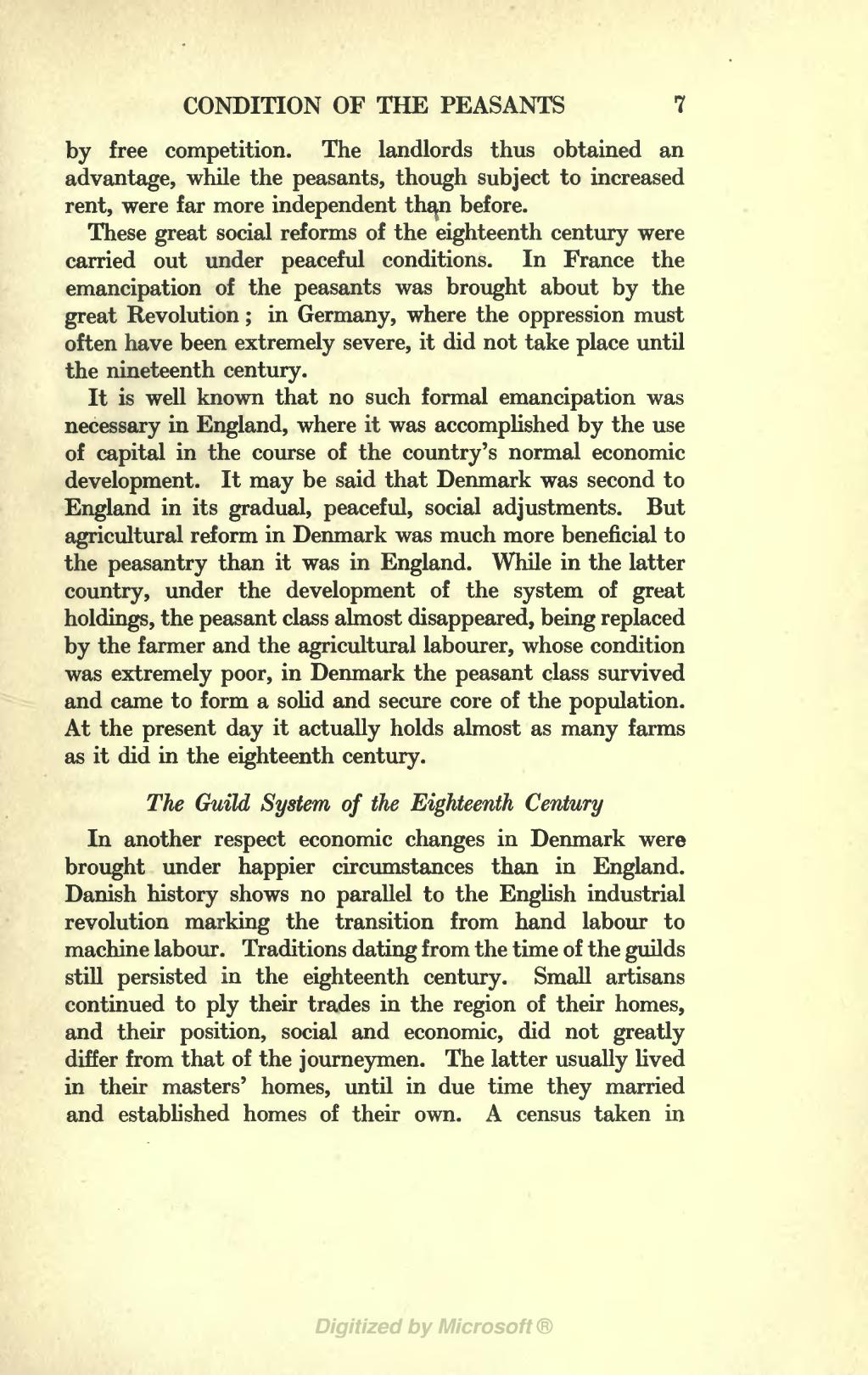by free competition. The landlords thus obtained an advantage, while the peasants, though subject to increased rent, were far more independent than before.
These great social reforms of the eighteenth century were carried out under peaceful conditions. In France the emancipation of the peasants was brought about by the great Revolution; in Germany, where the oppression must often have been extremely severe, it did not take place until the nineteenth century.
It is well known that no such formal emancipation was necessary in England, where it was accomplished by the use of capital in the course of the country's normal economic development. It may be said that Denmark was second to England in its gradual, peaceful, social adjustments. But agricultural reform in Denmark was much more beneficial to the peasantry than it was in England. While in the latter country, under the development of the system of great holdings, the peasant class almost disappeared, being replaced by the farmer and the agricultural labourer, whose condition was extremely poor, in Denmark the peasant class survived and came to form a solid and secure core of the population. At the present day it actually holds almost as many farms as it did in the eighteenth century.
The Guild System of the Eighteenth Century
In another respect economic changes in Denmark were brought under happier circumstances than in England. Danish history shows no parallel to the English industrial revolution marking the transition from hand labour to machine labour. Traditions dating from the time of the guilds still persisted in the eighteenth century. Small artisans continued to ply their trades in the region of their homes, and their position, social and economic, did not greatly differ from that of the journeymen. The latter usually lived in their masters' homes, until in due time they married and established homes of their own. A census taken in

